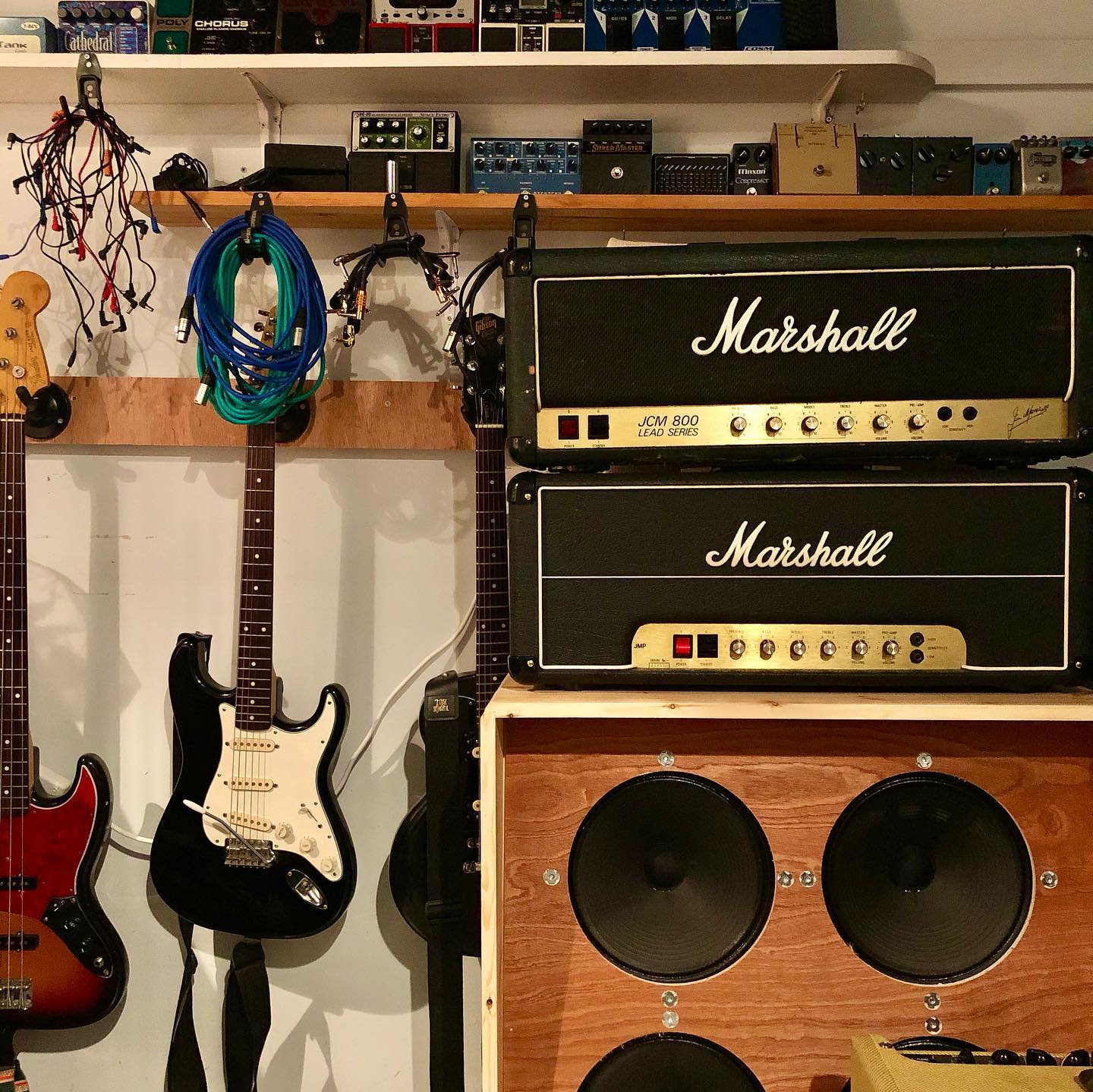A case study from a recipient of the Creative Workspace Resilience Fund.
In April, The Mayor of London launched a new emergency fund to help some of London’s most at risk creative businesses. Creative Land Trust worked to administer £1.5m of the grant, going on to fund 82 studios across 18 boroughs, supporting nearly 11,500 creatives. This series aims to highlight how studios and creatives have been effected by COVID19 and how funding from the Mayor with investment from Bloomberg Philanthropies has worked to support them.
Ben Spence, 24, is a music producer and owner of Fuzzbrain Studios, a recording, rehearsal and music facility in Leyton, East London. He founded the company with the aim of providing affordable space to other young people looking to develop and practice their skills, people who might not be able to afford to make music otherwise. He now supports around 30 young musicians and bands.
Passionate about offering individuals and bands a quality space to work, Ben’s studios have industry standard equipment and he charges a flat rate: for rehearsals it’s £10p/h with no additional costs. As well as making the space accessible, Ben wants to encourage musical experimentation and exploration so prefers not to charge for additional equipment or deter people from booking long studio sessions.
Like many creative studios, Fuzzbrain has become the focus of a diverse community, partly due to Ben’s social circle and upbringing in Walthamstow and Leyton but also due to the collaborative way creative tenants often work, sharing contacts, ideas and inspiration.
Ben said ‘Fuzzbrain Studios are a great place to start and develop your music career. We’ve seen young people use our facilities from their first rehearsal as a band, to picking up shows through our community and even releasing music with us.’
When Covid-19 took hold and social distancing guidance came into effect it was obvious that studio sessions couldn’t be run safely. Overnight every booking was cancelled, and Ben was faced with paying rent on the premises with no income at all.
Ben says his initial concerns turned into panic at the thought of losing the business he’d been developing since he was 16 – ‘it led to me lose a lot of sleep.’ Not only was Ben struggling, but he knew his tenants were also facing financial and emotional hardship without their creative space and the sense of community that came with it.


‘The pandemic hit us hard as we didn’t know if the studio was going to survive,’ says Micromoon band-member Daniel Alvarez-Giraldo. ‘It’s closure during the pandemic made me realise how important it
is to my work. I wasn’t able to rehearse, or record, any music that would further my career.’
As it happened Ben was about to release a compilation record – Fuzzbrain Music: 2020 Visions – featuring 13 exclusive songs from artists closely related to the studio. Through determined promotion, setting up an online shop for preorders and contacting whatever record stores were still operating, Ben was able to sell more than half the records, giving him a month’s grace to find a longer-term solution for the studio.
Unfortunately, that solution involved Ben having to sell a few higher value pieces of equipment to pay the next couple of months’ rent, hoping that he’d be able to replace them in time to keep the studios operating. Not taking any salary himself and struggling to sustain the business and his artists, Ben then had to use his personal savings to support himself and the business.
When the Creative Workspace Resilience Fund was launched by the Mayor of London to help some of London’s most at risk creative businesses, Ben focused his efforts on securing support for Fuzzbrain and applied quickly to Creative Land Trust (CLT) who were delivering the Fund.
CLT’s FundTeam and Awarding Panelclearly saw Ben’s commitment to creativity, diversity and affordability from his application, as well as his urgent need for support, and made an award to help him reopen the studios and get his business onto a more secure footing.
The Resilience Fund has ensured Fuzzbrain can reopen, and as restrictions have eased Ben has started to take bookings again. The award has also meant he can replace some of the equipment he had been forced to sell.
‘Support couldn’t have come at a better time. The fund has meant I have been able to keep the business running. I have been able to host sessions for label artists at a hugely subsidised rate as well as a number of different artists whose music Fuzzbrain releases. It allows them time to develop their craft without staring at the clock or worrying about the cost. The support is helping not only me as an individual but also the future of London music through these insanely talented young artists.’
The fund has resolved Fuzzbrain’s cash flow concerns and Ben is hoping he can continue to grow his list of recording clients and develop the other branches of the business, particularly the label. Fuzzbrain has a wealth of emerging talent with new music coming soon: we’ve been told to keep an eye out for Tuka, Micromoon and Getaway as well as the 2020 Visions compilation.
‘Thankfully Fuzzbrain has been able to continue to run subsidised sessions for artists like myself, which saves me hundreds of pounds. It also means I can fully focus on creating without worrying about the cost. Affordable spaces are hard to come by in London and even harder to maintain. I’m grateful that Fuzzbrain can continue to be a hub for underground London music and hope it will be around for many years to come,’ says tenant Daniel.
‘Luckily, a lot of artists have been writing or just considering making music during lockdown and thankfully they’re coming our way to explore their options. This includes a number of new clients that we hope will become regular customers which is great,’ added Ben.
It looks like Fuzzbrain will be able to recover in a post-pandemic environment, but gentrification is still a concern for the business, as property and rental prices look set to rise in Walthamstow and Leyton. Rising rents are a common issue, forcing many creative organisations to focus time on cash flow pressures they would rather spend developing their business or helping others create. Whilst security of tenure is an ongoing concern, Ben feels hopeful he will be able to stay in his current space for the foreseeable future.
Ben can also see that limited performance space and continued restrictions on live music will damage the prospects of a lot of young and emerging artists. This could have a long-term impact on musical communities like Fuzzbrain and the music industry more widely, unless we can find a more creative approach to hosting live music while Covid 19 restrictions continue to be part of our lives.

